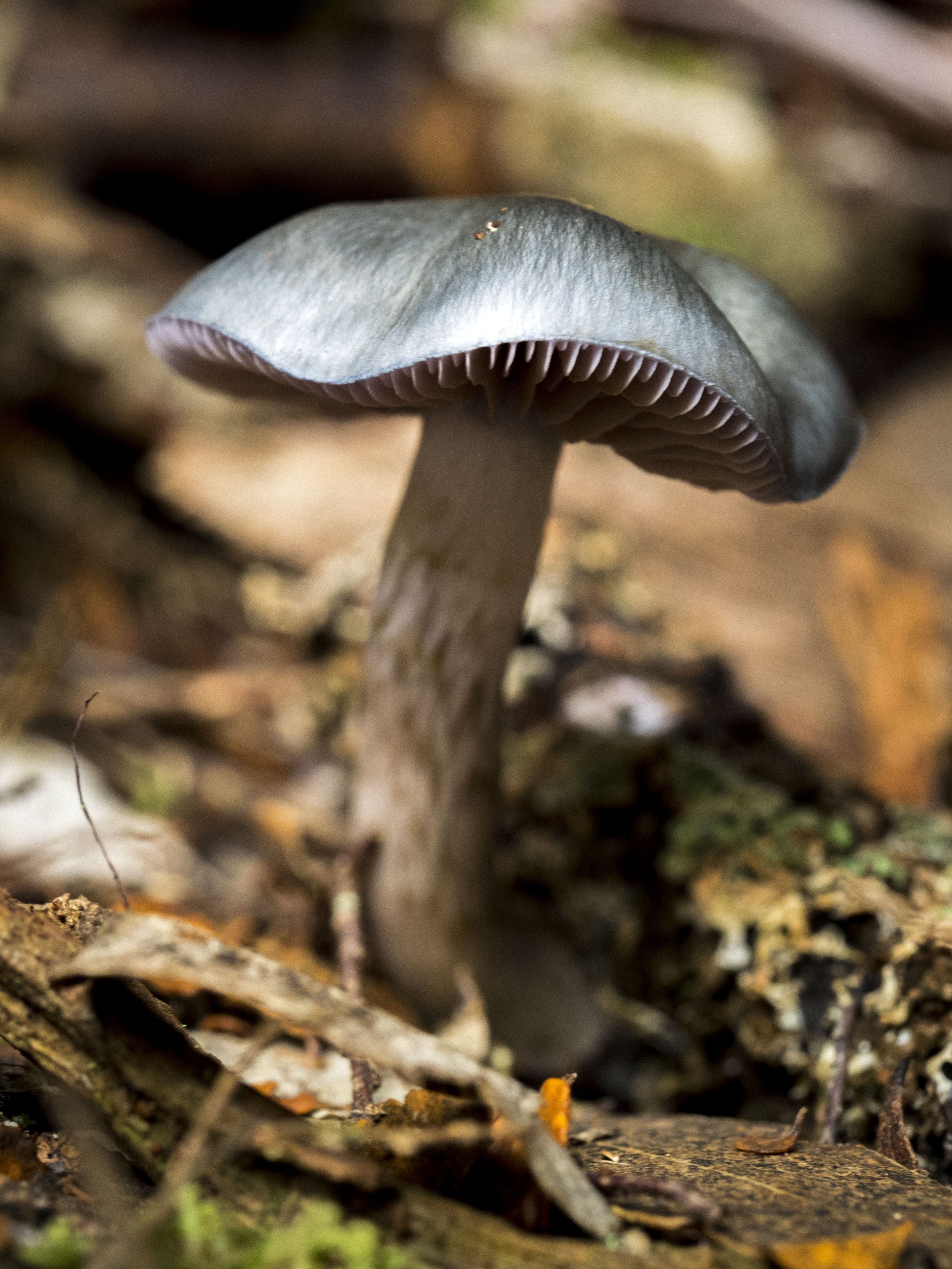With the longest nights of the year having taken place this week, it seems an appropriate time to contemplate the life of fungi, organisms that can grow without any direct sunlight.
The great recyclers of nature: fungi. 2020, Hasselblad 500C/M, 70mm Planar, Ektar 100.
Mushrooms are the reproductive organ of a much larger organism called a fungus. A fungus mostly consists of a vast network of filaments in the soil, called mycelium. These filaments criss cross the forest floor and can be so fine and so plentiful that there can be kilometres of mycelium beneath a single footstep. When the conditions are ripe, and the fungus wishes to release its spores, a mushroom will rise up from the mycelium below, a miniature seed spreading tower. For many years we used to think that the mushroom was the fungus. In reality, a mushroom is a bit like the tip of an iceberg; it’s a very small portion of it!
Mushrooms are spore releasing towers. Olympus Em-1, 2018.
Fungi are nature’s recyclers; they break down decomposing organic matter, rotting wood for example and make the nutrients available for other life forms to take up and digest. The filaments of mycelium interact with the roots of plants, trading various nutrients in return for starches and sugars, which the plants acquire through photosynthesis. The combination of mycelium and roots interacting with each other create so called mycorrhizal networks. It is incredibly complex and crucial to the overall well-being of the forest. And most of it is invisible to the human eye.
Mushroom colony, SW National Park. 2018, Olympus Em-1, 12-40mm.
Some species of mushrooms contain psilocybin, a psychedelic drug that has profound effects on our state of consciousness. Australia’s peak scientific body, the CSIRO has been recently given the green light to collaborate with medical companies in developing new psychedelic products aimed at helping people through mental illness, including through the use of psilocybin. The use of this drug enables different parts of the brain to communicate with each other more easily by reducing the resistance between neural pathways. This can lead to the individual embracing new perspectives and alternative ways of looking at the world. For someone entrenched in deep depression, the use of psilocybin can have remarkable results by creating the shift in perspective required to break out of a mental rut.
The stinkhorn fungus smells like rotting flesh, appealing to wildlife that will eat it and poop out its spores somewhere else. Genious!
In a world where humanity is producing more waste than it can possibly deal with in a sustainable manner, perhaps we would be wise to learn more about nature’s recyclers: the fungi! Perhaps there is already a fungus that exists out there that can break down plastic, and turn it into something else. Our understanding of fungi is still rudimentary, so investigation into the how these organisms work is likely to yield new discoveries for generations to come.




